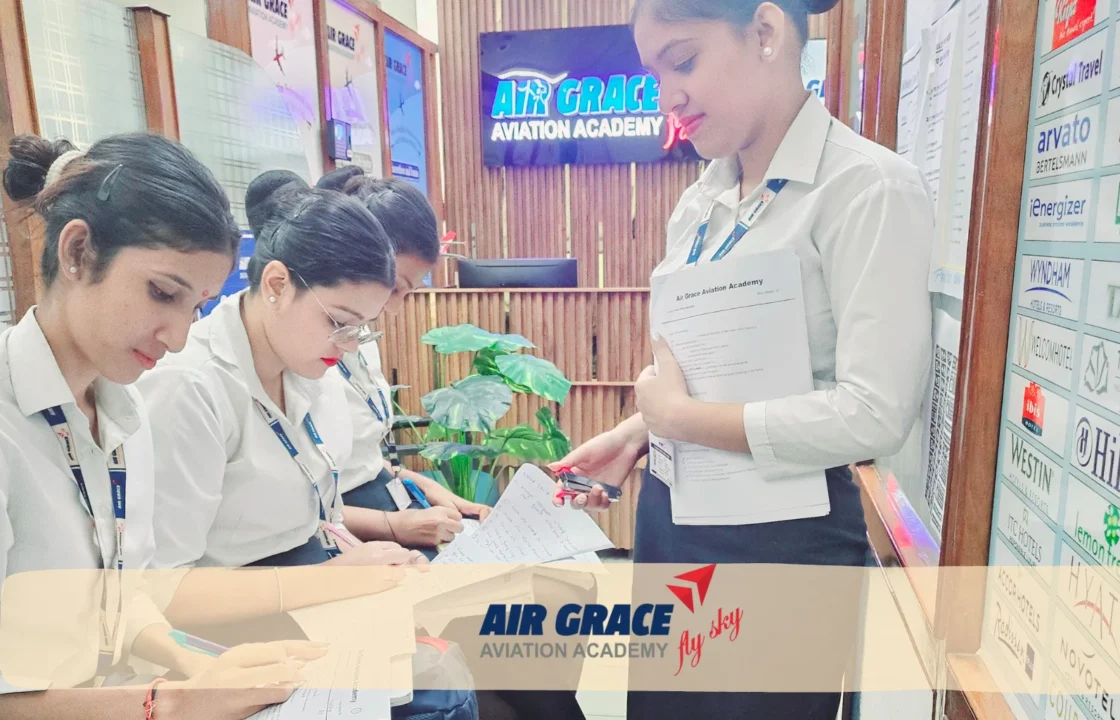
Sky-High Diet Plan: A Comprehensive Diet Plan for Energetic Cabin Crew
I. Understanding the Unique Nutritional Needs of Cabin Crew
A. The Demands of the Job: A Window into the Cabin Crew Lifestyle
The life of cabin crew members is a unique blend of physical and mental challenges, particularly when soaring through the skies at high altitudes. The demanding nature of their job exposes them to both physical exertion and the need for acute mental alertness. Understanding these challenges is crucial in tailoring a diet plan that not only sustains energy but also aids in recovery.
1. The Physical and Mental Challenges of Working at High Altitudes
Operating in an environment with reduced oxygen levels poses a distinct challenge. Ensuring an ample supply of nutrients that support physical endurance and cognitive function becomes paramount.
2. Irregular Schedules and Jet Lag: The Impact on Nutrition
Cabin crew members face irregular schedules and constant timezone changes, leading to disrupted circadian rhythms. This disruption necessitates a diet plan that adapts to varying work hours and helps combat the effects of jet lag on nutritional well-being.
B. Unraveling the Macro-Nutrients: Balancing Proteins, Carbohydrates, and Fats
Sky-High Diet Plan: To meet the unique demands of cabin crew life, a balanced intake of macronutrients is essential for sustained energy and overall well-being.
1. The Importance of Protein: Building Blocks for Energy and Recovery
Sky-High Diet Plan: Proteins are the foundation of energy and recovery. Lean protein sources aid in muscle repair, crucial for cabin crew members engaging in physically demanding tasks during flights.
2. Carbohydrates: A Fuel Source for Endurance and Cognitive Function
Sky-High Diet Plan: Carbohydrates, in the form of complex carbohydrates, serve as a sustained fuel source. This is particularly vital for enduring long flights and maintaining cognitive function at optimal levels.
3. The Role of Healthy Fats: Supporting Brain Health and Nutrient Absorption
Incorporating healthy fats into the diet is essential for supporting brain health and aiding in the absorption of essential nutrients. Avocado, nuts, and olive oil are excellent choices for cabin crew members.
C. Micronutrients: Essential Vitamins and Minerals for Sustained Vitality
Ensuring an abundance of micronutrients is crucial for sustained vitality and resilience to the challenges faced by cabin crew members.
1. Harnessing the Power of Antioxidants: Vitamins A, C, and E
Antioxidant-rich foods, including fruits and vegetables rich in vitamins A, C, and E, help combat oxidative stress induced by high-altitude travel.
2. Nourishing with Iron and Calcium: Strengthening the Body’s Resilience
Iron and calcium are pivotal for maintaining the body’s resilience, supporting bone health, and preventing fatigue.
3. Embracing B Vitamins: Enhancing Energy Levels and Mental Clarity
B vitamins play a crucial role in enhancing energy levels and promoting mental clarity. Whole grains, leafy greens, and lean meats are excellent sources.
D. The Hydration Factor: Staying Nourished in the Skies
Proper hydration is fundamental for cabin crew members to counteract the dehydrating effects of high altitudes and ensure optimal physical and cognitive performance.
1. Dehydration and Its Detrimental Effects on Physical and Cognitive Performance
Dehydration can lead to fatigue, decreased concentration, and compromised physical performance – challenges cabin crew members cannot afford.
2. The Value of Electrolytes: Balancing Fluid Levels for Optimal Functioning
Incorporating electrolyte-rich beverages helps maintain fluid balance, preventing dehydration and supporting optimal bodily functions during flights.
3. Hydration Hacks: Strategies for Consistently Staying Hydrated
Implementing hydration strategies, such as carrying a reusable water bottle and consuming hydrating foods like watermelon, ensures cabin crew members stay consistently hydrated.
E. Tailoring Nutrition for Sleep and Circadian Rhythm Optimization
Understanding the connection between nutrition and sleep is pivotal for cabin crew members striving to optimize their circadian rhythm.
1. The Connection Between Nutrition and Quality Sleep
Certain foods, such as those rich in tryptophan found in turkey and dairy, promote quality sleep by aiding in the production of sleep-inducing neurotransmitters.
2. Foods to Support Circadian Rhythm Regulation
Incorporating foods that support circadian rhythm, like nuts and seeds rich in melatonin, assists in regulating sleep-wake cycles despite changing time zones.
3. Diet Tips for Overcoming Jet Lag and Minimizing its Impact
Strategic meal timings, caffeine moderation, and the right food choices aid in overcoming jet lag, ensuring cabin crew members can adapt swiftly to new time zones.
II. Developing a Practical and Balanced Meal Plan
Crafting a practical and balanced meal plan is imperative to sustain energy levels throughout long flights and irregular schedules.
A. A Nutrient-Dense Breakfast: Energizing the Body for a Long Day Ahead
Starting the day with a nutrient-dense breakfast sets the tone for sustained energy and mental focus.
1. Building a Breakfast Packed with Lean Proteins and Fiber
Incorporating lean proteins like eggs and fiber-rich foods such as whole grains kickstarts metabolism and provides lasting energy.
2. Smart Carbohydrate Choices for Lasting Energy
Choosing complex carbohydrates like oats and whole-grain bread ensures a steady release of energy, combating mid-flight fatigue.
3. Supercharging Breakfast with Healthy Fats
Adding healthy fats like avocado or a handful of nuts enhances satiety and supports brain function throughout the day.
B. Strategic Midday Meals: Nourishment during Busy Work Hours
Midday meals play a crucial role in sustaining energy levels during the demanding work hours of cabin crew members.
1. Lunch Ideas to Sustain Energy and Promote Focus
Balanced lunches with a mix of lean proteins, complex carbohydrates, and vegetables provide sustained energy for the latter part of the day.
2. Incorporating Body-Friendly Snacks and Hydration Intervals
Smart snacking, such as Greek yogurt with berries or a handful of trail mix, combined with regular hydration intervals, helps maintain energy levels during flights.
3. The Science of Smart Meal Portions
Understanding the science of portion control ensures cabin crew members consume enough to sustain energy without feeling overly full.
C. Dinner Considerations: Supporting Rest and Recovery
Dinner plays a vital role in supporting restful sleep and aiding recovery after a day of intense physical and mental activity.
1. Balanced Dinner Options with Lean Proteins and Vegetables
Opting for lean proteins like grilled chicken or fish alongside a variety of vegetables ensures a balanced and nutrient-rich dinner.
2. Hydrating and Replenishing Electrolytes for Restful Sleep
Incorporating hydrating foods and beverages, coupled with electrolyte-rich choices, aids in replenishing the body for a restful night’s sleep.
3. Timing and Portion Control for Optimal Digestion
Eating dinner at least two hours before bedtime and controlling portion sizes support optimal digestion, preventing discomfort during sleep.
D. Healthy Snacking Habits: Sustaining Energy Between Meals
Strategic snacking is essential for cabin crew members to bridge the gaps between meals and maintain a steady supply of energy.
1. Nutrient-Dense Snack Ideas for Quick Refueling
Snack choices like hummus with veggies or a piece of fruit provide quick refueling without compromising nutritional value.
2. Healthy Hydration Alternatives to Boost Alertness
Opting for herbal teas or infused water instead of sugary beverages supports hydration while avoiding unnecessary calories.
3. Avoiding Common Pitfalls: Mindful Choices Even on the Go
In the hustle of a flight, making mindful choices, such as opting for nuts over chips, ensures cabin crew members prioritize nutrition even during busy times.
E. Preparing for Arrival: Nutrition Tips to Recharge and Relax
Post-flight nutrition is pivotal for combating fatigue, jet lag, and preparing for exploration at layover destinations.
1. Post-Flight Recovery Strategies to Combat Fatigue and Jet Lag
Recovery strategies include consuming a mix of protein and carbohydrates within the first hour after landing to replenish energy stores and aid recovery.
2. Balanced Meals to Support Regulated Sleep Cycles
Choosing balanced meals at layover destinations promotes regular sleep cycles, aiding in swift adjustment to new time zones.
3. Wetting Your Appetite: Exploring Local Cuisines While Maintaining Healthy Choices
Exploring local cuisines is part of the joy of travel. Opting for balanced choices within the local fare ensures an enjoyable experience without compromising health.
III. Summary and FAQs – Sky-High Diet Plan
A. Summary: Key Takeaways for Sky-High Nutrition Success
- Understanding the Unique Nutritional Needs of Cabin Crew
- Developing a Practical and Balanced Meal Plan
- Prioritizing Rest and Recovery for Optimal Performance
- The Importance of Maintaining Hydration and Snacking Mindfully
- Post-Flight Strategies for Rejuvenation and Local Exploration
B. Frequently Asked Questions:
- How can I manage nutrition during unpredictable and irregular schedules?
- Are there any specific foods I should avoid while flying as cabin crew?
- How can I overcome jet lag and establish a healthy sleep routine?
- What are some practical tips for healthy eating while on layovers?
- Are there any considerations for cabin crew with dietary restrictions or allergies?
Click Here to know about Cabin Crew Training After 12th
Click Here to know about our Advance Diploma in Aviation Management
For our Linked In Profile – Click Here
To read Google Reviews of our Students & Parents – Click Here



